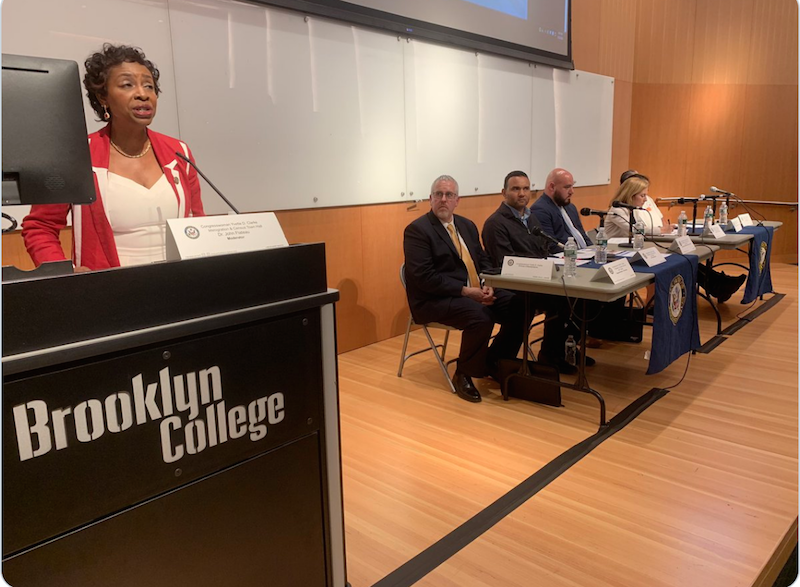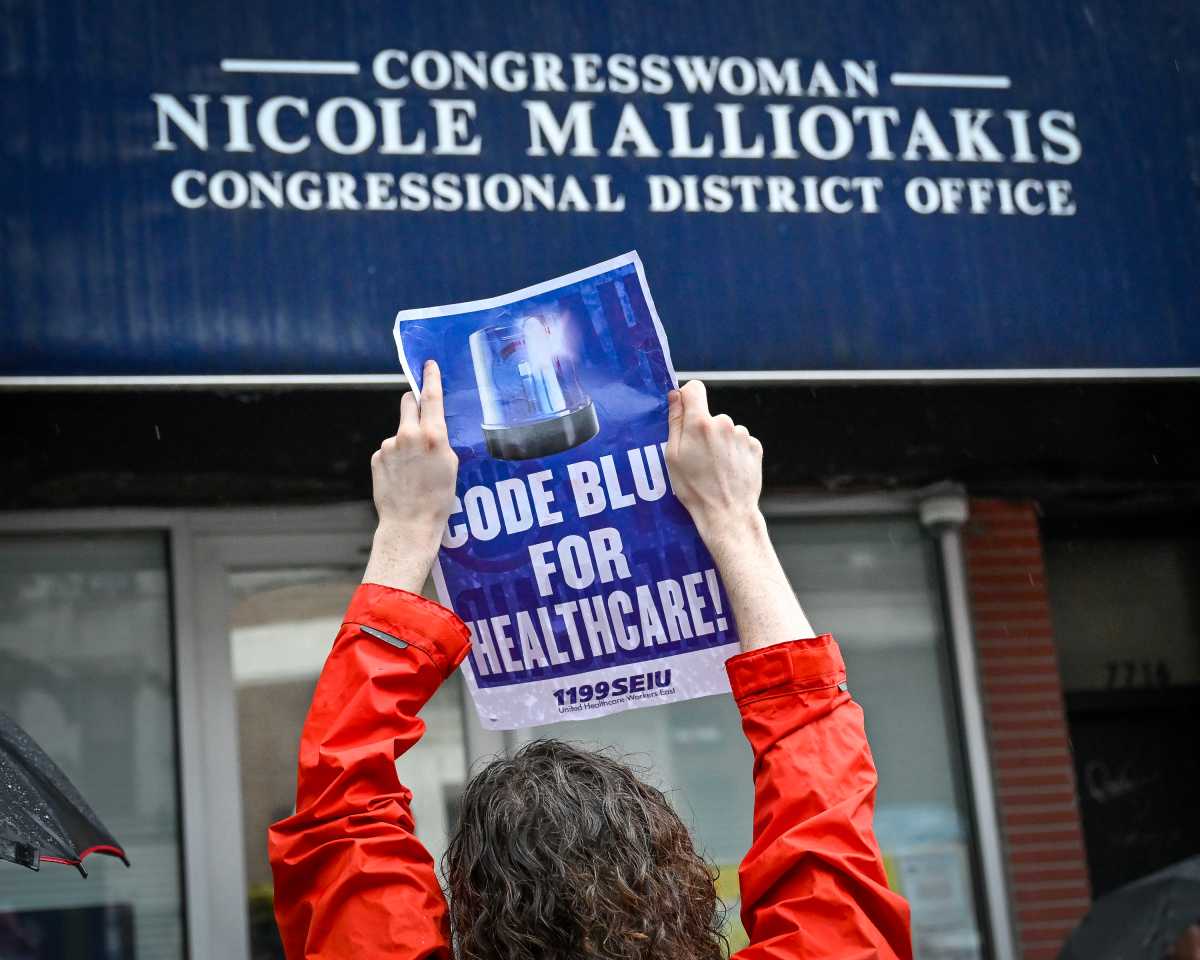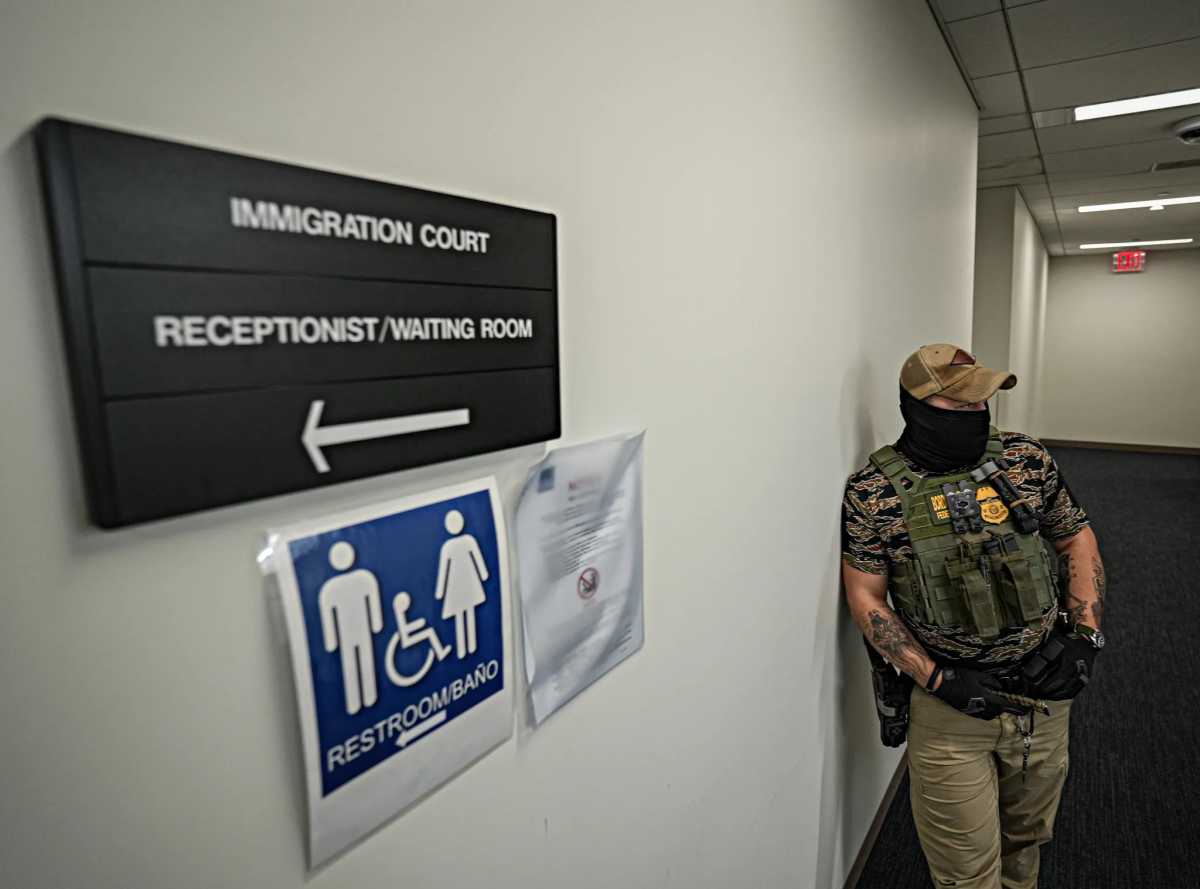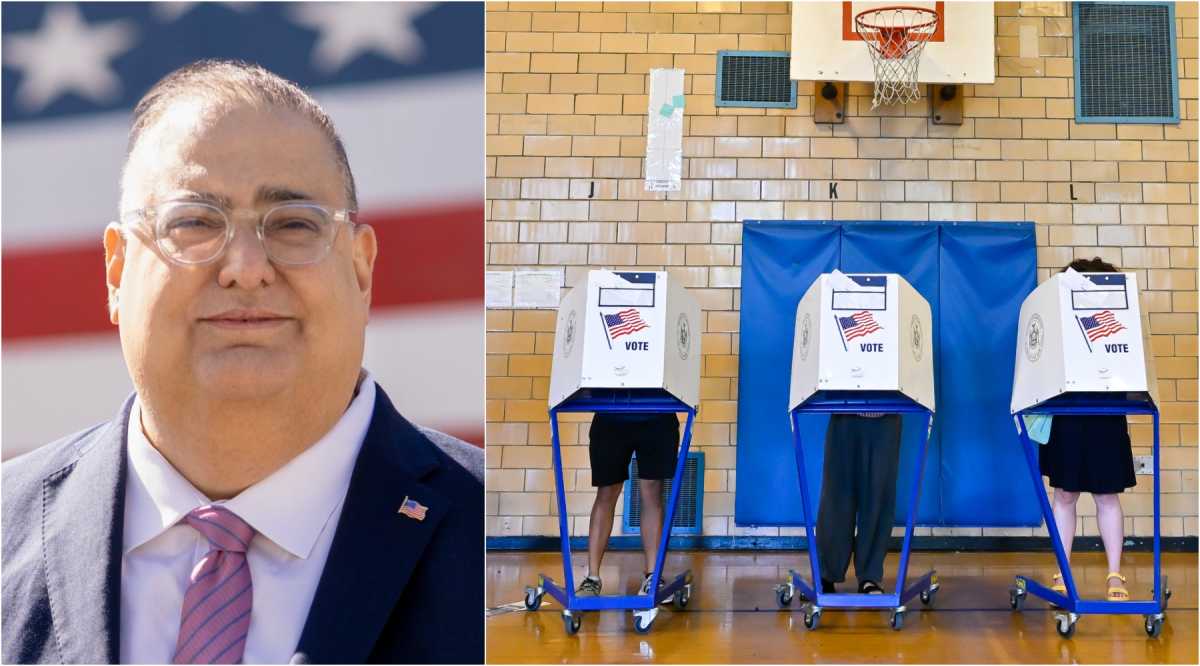Make sure to fill out the 2020 census forms, but beware of scammers who prey on uninformed immigrants.
Those were the two main messages delivered last night at U.S. Rep. Yvette Clarke’s (D- Brownsville, Crown Heights, East Flatbush, Flatbush, Kensington, Midwood, Prospect Heights, Prospect Lefferts Gardens, Park Slope) town hall on issues related to the 2020 Census and immigrant affairs at Brooklyn College.
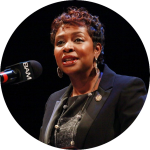
Other topics of importance discussed included accessing government resources, and the new federal public charge rule the Trump Administration put in effect, which limits legal immigrants in the country from obtaining permanent residency (getting a green card) if they are on social services.
A number of elected officials were in attendance, including State Senators Zellnor Myrie and Kevin Parker, Assemblywoman Diane Richardson, City Councilman Brad Lander and Comptroller Scott Stringer.
Panelists included the director of the U.S. Census Bureau’s New York Regional Office Jeff Bahler, Deputy Commissioner at the Mayor’s Office of Immigrant Affairs Sonia Lin, Deputy Chief of the Immigrant Affairs Unit at District Attorney Eric Gonzalez’s Office Jose Interiano, Legal Aid Society Staff Attorney Elizabeth Rieser-Murphy, CUNY Citizenship Now Community Liaison Carlos Sierra and New Sanctuary Activist Ravi Ragbir, who was previously ordered deported but received support from multiple elected officials, including Clarke and now-Public Advocate Jumaane Williams.
Medgar Evers College professor Dr. John Flateau moderated the panel.
As 2020’s census reaches closer, panelists urged the importance of filling out the census forms as the census determines redistricting and allocation of over $675 billion in funds. Yet in the past, many residents have failed to respond.
Nationwide, the rate of respondents for the 2010 census was 75.8%. In New York City, that number was 61.9%. In parts of Brooklyn, the number goes down to 37%.
“Think of a school of 100 kids. Let’s say only 80 of those kids get counted. For the next ten years, that school is going to receive eight percent of the funding it needs to fully support their students,” said Bahler. “And it doesn’t just affect those 20 students who weren’t counted, it affects everyone. So if you choose not to count or your neighbor chooses not to be counted, it will affect you, your community, your city, your state for the next 10 years. So we have to get this right.”
For the first time, the 2020 census will be available online and over the phone. Bahler added that the bureau hopes to get the number of responses to over 80% in New York City, which would be close to a 20% increase from the 2010 census. He urged community voices to share census information with others and promoted temporary jobs with the Census Bureau, which people can apply for here.
All personal data provided on a census is protected by Title 13, which prohibits the Census Bureau from sharing it with anyone, including other government agencies such as Department of Homeland Security (DHS) or Immigration and Customs Enforcement (ICE).
“We cannot use the information you provide against you for any reason. We are not allowed to release any information that would identify an individual or a household,” Bahler added. “Local, state, federal law enforcement cannot access our data. Homeland security, ICE, cannot access our data. Any administration cannot access our data. It is protected under Title 13. It would take an act of Congress to change that.”
Panelists and Clarke also warned attendees to avoid scammers who prey on uninformed immigrants.
“I really want to urge our residents to use the offices of elected officials. What we have found, unfortunately, the whisper campaign takes place. ‘So and so got their papers done by such and such.’ And what we are finding is that these are scam artists,” said Clarke. “When indeed they could have come to our offices, where they get free information, get legitimate legal advice but oftentimes the rumor tree is what drives people and they end up having their pockets picked and because they’re in-between status, they’re also fearful of speaking about the crime that was committed against them.”
Interiano urged any victim of such a scheme or any crime to call or visit the District Attorney’s Action Center, which is a way to directly report a crime to the DA’s office without having to contact police.
“What we have seen is that immigrants are very routinely preyed upon because of their lack of knowledge and because of the rise in fear,” said Interiano. “When we have instances where there is a new initiative or a new policy being implemented by the federal government, we see a rise in people seeking these [illegitimate] services to obtain a Green Card or citizenship. But I’m here to tell you that the wrong type of help can hurt.”
Policy changes by the administration, such as the recent public charge rule change, often receive much press while not necessarily affecting many groups of immigrants.
“This rule doesn’t affect all immigrants. It is actually very narrow in its scope,” said Lin. “Only certain categories of immigrants are subject to a public charge test, only certain kinds of immigration applications are attached to them.”
The Mayor’s Action NYC hotline, which can be reached at 1-800-354-0365, can let residents know whether the rule applies to them or not. It is also designed to direct people to immigration attorneys and is city-funded.


